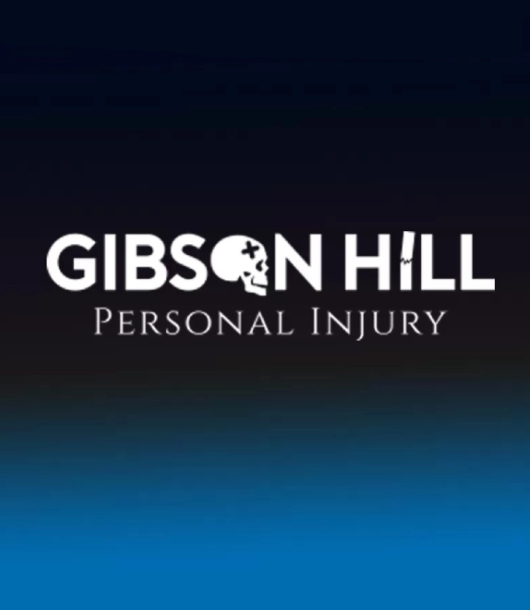Houston Poor or Unsafe Weather Conditions Attorneys
Did a truck driver crash into you while driving in poor or unsafe weather conditions? Did you need medical attention for the injuries you sustained? If so, contact the Houston truck accident attorneys at Gibson Hill Personal Injury. We may be able to help you file an insurance claim or lawsuit.
Bad weather can make roadways dangerous for drivers. If someone is driving too fast or becomes distracted by their cell phone, they could lose control of their vehicle. When the road is wet or icy, it’s difficult to maneuver safely, and an accident is much more likely to occur.
Commercial vehicle drivers can cause severe damage if they crash into a smaller car. It’s their responsibility to adjust their behavior in inclement weather conditions, so they don’t create dangerous situations for other drivers and passengers. If they end up causing an accident, they should be held liable for the damages they cause.
If you were injured by a negligent truck driver, our top-notch Houston personal injury attorneys can guide you through every step of your case in order to maximize your compensation. Contact Gibson Hill Personal Injury at (713) 659-4000 to find out how we can help.
Poor or Unsafe Weather Can Result in Severe Accidents
Most people adjust their driving when they encounter bad weather. They might slow down to a safer speed and focus on the road ahead. Unfortunately, other drivers act carelessly despite the slippery pavement or blinding snowfall.
When motorists think of poor weather conditions, most think of ice or snow. They don’t realize that wind and rain could also create hazards that lead to accidents. Even if the sun’s out, a gust of wind could overturn a truck or push it into another vehicle.
The most common weather events that can contribute to a truck accident include:
- Wind
- Snow
- Ice
- Sleet
- Fog
- Rain
The best preventative measure you could take is just to stay home when the weather is unfavorable. Unfortunately, most people have responsibilities, such as work, school, and errands. If you have to head out onto the dangerous roads, you must follow the safety tips below:
- Reduce your speed so you can come to a sudden stop or maneuver safely.
- Turn on your headlights but avoid using your brights if there’s fog.
- Pay attention to the cars around you, and don’t allow any distractions to redirect your focus from the task of driving to something else.
- Maintain adequate distance between you and the truck ahead, so you don’t crash into their rear if you have to slam on your brakes.
- Take a few extra seconds at intersections to check for oncoming vehicles before proceeding.
- Don’t frequently change lanes unless it’s necessary.
Determining Who’s at Fault After an Accident in Poor or Unsafe Weather Conditions
Driver error contributes to most crashes that take place during inclement weather. Examples of dangerous behavior include:
- Tailgating
- Speeding
- Failure to yield
- Texting while driving
- Running a stop sign or red light
- Failure to check blind spots
Even though you encountered bad weather, that doesn’t mean the truck driver isn’t responsible for the actions that led to the accident. There’s a fault system in Texas that allows accident victims to pursue compensation from the at-fault driver. Typically, their liability insurance company is the one to pay if you choose to file a claim.
Every driver in the state must carry auto insurance with minimum liability limits. The standard amounts are $30,000 for bodily injury and $25,000 for property damage. However, commercial trucks can cause more significant damage than passenger vehicles. The Federal Motor Carrier Safety Administration (FMCSA) requires these trucks to have at least $750,000 in liability coverage.
You must be able to provide the insurance company with evidence that the truck driver caused the accident during the unsafe weather conditions. Depending on the liability limits listed on their policy, you could pursue compensation that covers all your damages.
Damages are all the losses associated with an accident. There are two main types: economic and non-economic. Economic damages refer to the necessary costs of treating injuries and repairing property damage. Non-economic damages are the intangible losses suffered after an accident.
The damages you could seek in a liability claim may include:
- Medical bills
- Mental anguish
- Car repair or replacement
- Physical impairment or disfigurement
- Lost wages
- Lost future earnings
- Out of pocket expenses
- Pain and suffering
It’s easy to determine the total cost of economic damages. All you have to do is request copies of your billing statements from doctor’s appointments, vehicle repair estimates, and other expenses. However, calculating non-economic damages can be challenging because there’s no price tag on things like pain and suffering. When an insurance company is reviewing someone’s claim, they might use some of the factors below to come up with a fair settlement amount:
- Type and extent of the injury
- Evidence proving the truck driver was at fault
- Total hours missed from work
- Impact of the injury on daily life
- Statements made by accident witnesses
- Duration of the recovery period
- Available liability insurance coverage
- Total medical expenses
- Mental or physical disability caused by the crash
- The estimated cost of necessary treatment in the future
Gibson Hill Personal Injury will review all the elements of your case to determine the maximum compensation you deserve. We’ll consider your total damages, the factors listed above, and other necessary information. We know how important it is to hold the truck driver liable for the harm they caused. You shouldn’t have to pay out of pocket for any of your expenses. We’ll make sure the insurance company provides a completely fair settlement offer.
During the claims process, it’s crucial that you don’t admit any fault to the insurance adjuster. Texas follows a modified comparative negligence rule that diminishes a person’s damages by their shared level of fault.
To clarify, let’s say your total damages equal $100,000. If the insurance company determines you share 20% liability for the crash, you would only be entitled to a maximum of $80,000 in compensation. If the truck driver was 100% to blame, you could pursue the full amount. There’s also a 51% percent rule that would prevent you from recovering any amount of compensation if you share more than 50% fault.
Seeking Damages in a Personal Injury Lawsuit
Most accident victims first file an insurance claim following their accident. Liability insurance policies within the trucking industry are usually adequate in compensating for all past and future damages. However, if the insurance company denies the claim or provides a low settlement offer, you might be able to file a lawsuit against them and the at-fault truck driver.
The legal standard in personal injury lawsuits is negligence. Negligence occurs when one party fails to follow a reasonable degree of care to prevent another person from harm. There are five elements you must prove to demonstrate negligence existed:
- Duty: The at-fault truck driver owed you a reasonable duty of care;
- Breach of duty: They breached their duty;
- Cause in fact: If it weren’t for their actions, you wouldn’t have suffered harm;
- Proximate cause: Their breach was the direct cause of your injuries; and
- Damages: You incurred damages from the accident.
There’s also a strict deadline you must follow to file a lawsuit. It’s known as a statute of limitations. In Texas, the statute of limitations for truck accidents is two years. If you want to sue for compensation of your damages, you must do so within two years of the accident date. If two years pass, you’ll lose your legal right to hold the truck driver or trucking company liable.
Gibson Hill Personal Injury Legal Fees and Costs
We know the burden of suffering a truck accident. They can cause devastating injuries that require expensive medical treatment. You might already face financial struggles, and we don’t want to add additional stress to your life. That’s why we take cases on contingency. That means you don’t have to pay us up front to represent you in your case. We don’t collect any legal fees unless we recover financial compensation for our clients. If we lose your case, you won’t have to pay.
We also offer an initial consultation for free. There’s no risk in meeting with one of our attorneys and discussing your legal needs. We’ll review all the details of your accident to determine the best course of action to take. We never pressure people into accepting the terms of our services or following the advice we give. We’ll be happy to let you know the options available and what we believe would be most effective in getting you the financial award you deserve.
Why Choose Gibson Hill Personal Injury?
We have an experienced team of legal professionals who will always make you a priority. We’re available 24/7, so you can reach us when you need us. You can depend on us to provide you with quality services, guidance, and support during this traumatic experience.
We believe in one-on-one attention from start to finish. Your lawyer won’t hand off your case to another person. When you hire us, we’ll get to know you and create the right plan that meets your goals. You can rest assured you’ll be in capable and trustworthy hands.
Call Gibson Hill Personal Injury at (713) 659-4000 to schedule your free consultation. We have the resources, knowledge, and skills to thoroughly investigate your accident and obtain sufficient evidence to prove the truck driver’s actions led to your injuries.




